
Providing affordable, accessible, high quality, relevant Science Engineering and Technology programmes
Unisa recently officially handed over a biodigester and water system to the Sakhile Centre of Learning based in Amazizi Village, KwaZulu-Natal. The school was previously housed in a dilapidated building with inadequate water and sanitation infrastructure, which made it ineligible for government support. Then, through a collaborative initiative by the Legacy of Grace Foundation, the Three Tree Hill Foundation, Unisa’s Institute for Catalysis and Energy Solutions (ICES) in the College of Science, Engineering and Technology (CSET), and Engineers Without Borders Unisa (EWB-Unisa), the facility was transformed into a sustainable school, using eco-friendly materials. The key features of the revamped school include new classrooms, a kitchen, toilets, a biodigester that converts waste to biogas (cutting energy costs by 90%) and rainwater harvesting tanks.
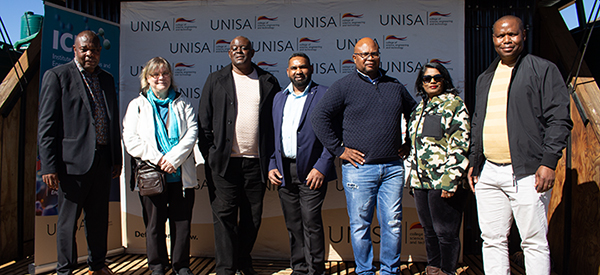
Unisa senior management, together with Dr Rishaad Ebrahim, Executive Director at Grundfos, before the official unveiling of the wall plaque
In addition, to address the inconsistent municipal water supply, the school approached Grundfos, a pump supplier, with a proposal that was met with an enthusiastic response, leading to a €20 000 donation, enabling the installation of a borehole, solar panels and solar-powered pumps. This ensured reliable water access for the school and the broader community. The project also promoted skills development through local involvement and student participation.
The Sakhile Centre of Learning, which consists of five staff members and 90 learners, presented a unique opportunity to collaborate with other partners who were toying with the idea of bringing green and sustainable solutions to rural communities, particularly since people in the rural areas tend to be neglected. The Legacy of Grace Foundation and Three Tree Hill Foundation incorporated sustainable building elements into the project by using waste shipping containers and other recyclable materials to construct the kitchen, toilets and classrooms.
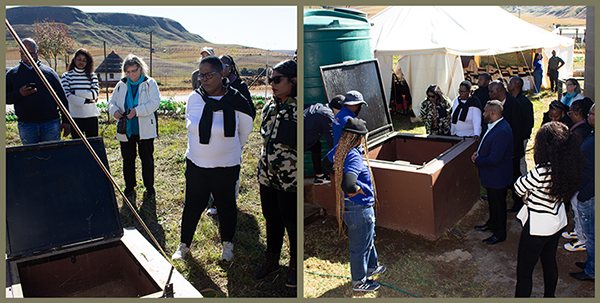
Guided tour of the facilities at the Sakhile Centre of Learning
Unisa’s Waste-to-Energy Engaged Scholarship initiative brought in the clean energy dimension by introducing biogas energy. This shift from LPG gas to biogas has reduced energy costs by up to 90% for the school, providing a sustainable and affordable energy source for cooking and heating. Previously, the school spent close to R2 000 on procuring LPG gas to prepare meals for the learners. LPG gas has now been entirely replaced by biogas, which is free. The biodigester was installed for the community at the school’s request, since it will benefit the school and the learners. This was also meant to be an opportunity for the community to learn about alternative forms of energy.
ICES and Unisa-EWB, together with the Legacy of Grace Foundation, the Three Tree Hill Foundation and Grundfos, conducted an official handover ceremony on 22 May 2025 with a commemorative wall plaque unveiling.
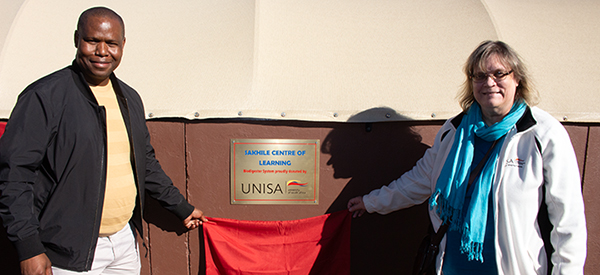
Prof Peter Makgwane, Acting Head: ICES, and Prof Eeva Rapoo, CSET Head of Teaching and Learning, unveiling the wall plaque sponsored by Unisa
ICES intends to build more of these biodigesters nationwide as part of the Unisa 150-year celebration – 10 sites, in 5 provinces, are all projected to be completed by the end of 2025. Furthermore, the team highlighted that much can be anticipated from ICES in the next couple of months, including partnerships, research collaborations and ground-breaking research, as it strives to be a leader in the energy space.
* By Lesego Maloka, Administrative Assistant, College of Science, Engineering and Technology
Publish date: 2025/06/03
 Unisa celebrates a project of hope, dignity and student success
Unisa celebrates a project of hope, dignity and student success
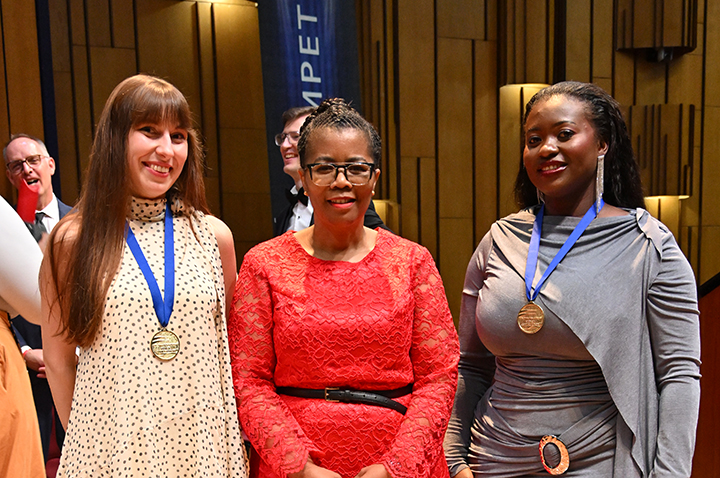 Women vocalists take top honours at Unisa's globally renowned showcase
Women vocalists take top honours at Unisa's globally renowned showcase
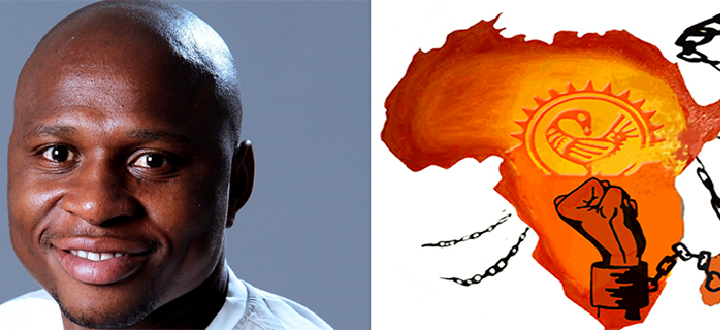 African wealth is dependent on investment in education and development
African wealth is dependent on investment in education and development
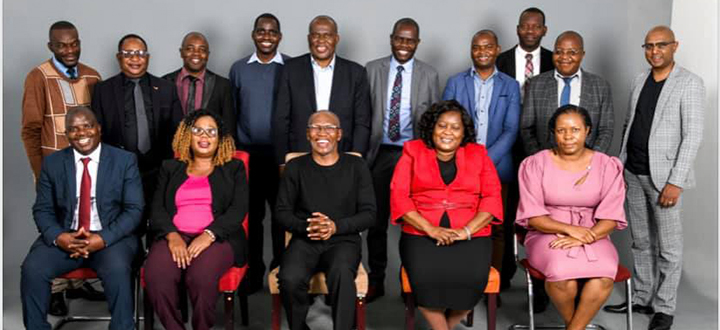 Unisa celebrates matric result success at Correctional Services ceremony
Unisa celebrates matric result success at Correctional Services ceremony
 Unisa ICT Director recognised among acclaimed IT leaders
Unisa ICT Director recognised among acclaimed IT leaders